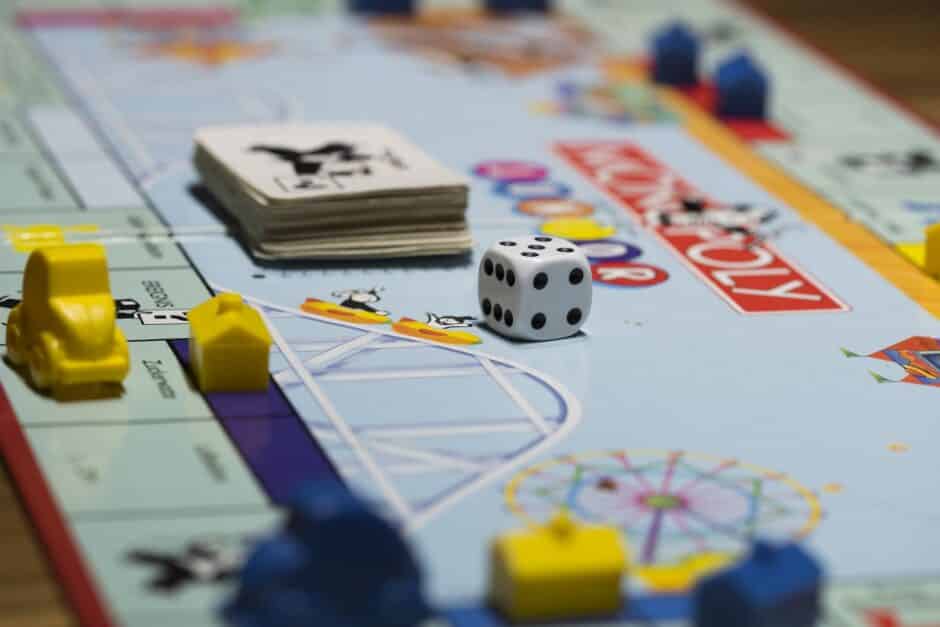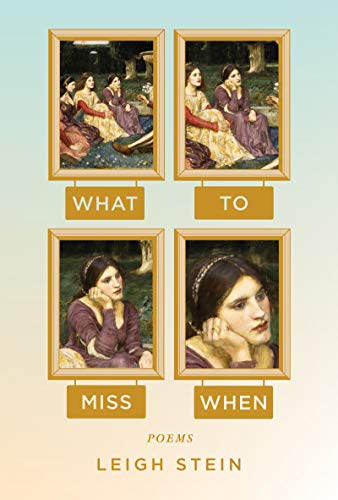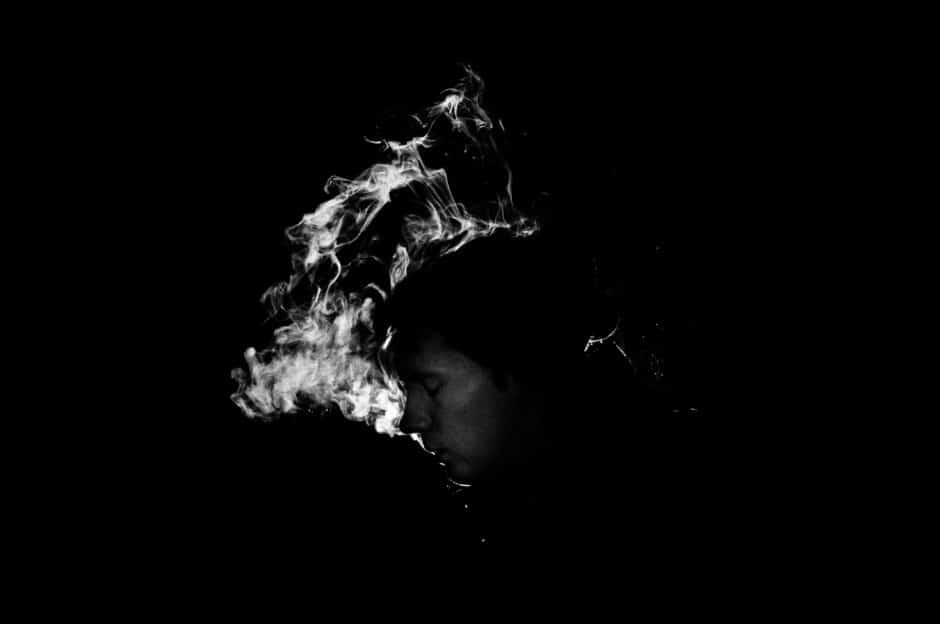The phone rings. Ying-ying takes a quick glance at the wall clock that reads 8pm, tosses the apple core she has been nibbling on into the trash can, and hurries from the kitchen to the living room. She unplugs the phone from the socket but sees only a string of zeros, the kind of call that one makes through the Internet. She wonders for a second what to do, but then decides to answer it.
“Hello?” she greets.
No one answers for a moment, but then an accented male voice starts to bray. “Am I talking to Tan Ying-ying,” the voice asks, “born on June 4th, 1994, current address 355 Yangshupu Road 5-14-1, Hongkou District, Shanghai?”
Yes, yes, and yes. Ying-ying gasps in recognition of her personal details bared by the voice, but his unrushed tempo brings about a tinkling echo: somebody else has announced the same information to her before, and that was not too long ago.
“Yes, this is she,” so she says, with affected calmness, “and are you—”
But he is speaking already. “—Good. And, as of today, Sept 28th, 2017, you’re still working at Primavera Organic Food Import Co., located at 75 Dinghai Road, Yangpu District?”
“Correct. But are you—”
“—Great. And our record shows your mom is … well, I’m sure your mom is still who she is. So, Miss Tan, I am calling from Miles Finance, to remind you that your loan is due tomorrow, at 12 pm sharp.”
She is right, then; she is experienced dealing with his kind. “Yes, I knew the call must be from you guys,” her default self is coming back, “I’ll have the money ready.”
“Wonderful, wonderful. And let me remind you, Miss Tan, that we won’t accept money wired from you directly, coz we use separate accounts to track outgoing and incoming funds. A colleague of mine will meet you at the McDonald’s at 1500 Pingliang Road—near the intersection with Lilin Road, at 11:45am, and he will take you to an ATM nearby, where you can then make the deposit.”
The voice pauses there, as if to wait for her jotting down the details. “Since my colleague has to confirm you adhere to all our terms,” it then resumes with slight relaxation, “please bring your copy of the loan contract. Jus’ to go over the numbers again, your principal is ¥24,050 and your annual rate is 36%, so adding a ¥500 signage fee, the total due for your four-month loan is 27,436 yuan. OK, so my colleague will see you tomorrow, and please remember: there’ll be consequences should you fail to honor our conditions in any manner.”
“Sure, I—”
But he hangs up already. They always have the upper hand, dictating the loans’ terms and nipping off phone calls, but all that power would cease after 12pm tomorrow, when the last cent of her debt is cleared. Ying-ying feels a hope rising inside her, one that heightens and churns out a restlessness, urging her to swipe open her bank app to double-check the money. She does that and ensconces on the assurance that the digits bring about, but the sight of a sidenote stings her eyes and bursts her transient calmness. She finds herself rereading the sidenote, the one line announcing that all the money is transferred in from the account ending in 4591; and as she scrolls down and counts the many more transfers from there, the growing sum pulls her deeper into a flashpoint, where her cheeks burn in shame and embarrassment.
So yes, how shameful and embarrassing this is, because the 4591 account belongs not to her but her mother, a widowed schoolteacher five years away from retirement, withering alone on the outlying Chongming Island. In the silence befalls her apartment, 14 stories above the street noise, Ying-ying pictures her mother making the transfer, not on her old Nokia but over the small village bank’s actual counter, filling yet another form under the teller’s suspicious gaze.
That picture pains her: how much trouble she has caused. She is 23 now and makes about ¥6,000 a month, why does she still rely on monetary help from her mother? She shuts her eyes and retrieves her first day in college, when she and her mother took a crowded bus to the downtown campus, only to find that her three dormmates had all come in by private cars. They were city girls, beautiful with fashionable clothes and exquisite makeup; their fathers looked powerful, their mothers had their hair piled up in towering buns—a banker, an owner of factories, a high-ranked bureau chief. Ying-ying had never been so close to such people; her classmates back home all had peasant, shopkeeper, government functionary parents. And when she introduced her mother and explained her father had passed, she suddenly felt a hesitance, her cheeks unexpectedly blushed.
Her mother sensed it; she became unusually reticent. They sat in the corner of the campus canteen and had their lunch, her mother only said how happy Ying-ying’s father would be to see her attending college, how much she hoped Ying-ying would excel in her chosen major of Spanish (all majors were declared at the time of college application). Ying-ying listened but did not engage. She looked at her mother’s worn blouse draping loosely off her thin shoulders, streaks of white hair sticking out in the thin black layer that hardly covered the skull, and her heart hardened with a new recognition of her mother: an unceremonious, unenviable woman, leading her staid life in a sleepy backwater. She had the sudden feeling that her own life up to that point had not been her destined one; she should have lived like her roommates, butterflies soaring high, or koi floating elegantly about.
She yearned for changes and change she would. Her roommates were willing to lend a helping hand, so before she learned to pronounce y as igriega, she’d already bought her first lipstick on their advice. Later, when she karaoked in her finest outfit, when she sipped coffee with exquisite makeup on her face, she could sense others’ widened eyes fixing on her. She realized she had always longed for this feeling, actually, to be looked up to by widened eyes; she recalled how her second-grade classmates talked about her after her father had died (“she has only a mother but no father”), or how they laughed at their teacher—Ying-ying’s mother—who had patches on her clothes and thus must be poor. She wished they could see her now, all the envy and shame and regret on their faces.
To support herself she economized her mother’s allowance and tutored high schoolers, but still the demand outpaced income faster than she had expected. Unable to bear the mortification of asking her roommates to help but fidgeting on the brink of finance, she reached out to an Internet lender for the first time in her sophomore winter. She thought she had found the solution until she realized how frequently new bills from them continued to arrive, with interest compounded too much and too soon.
She rolled back her splurges and skipped meals, but still borrow new loans to cover the old ones. With nowhere else to turn, she finally sought help from her mother. She would never forget that day, September of her junior year, when she called her mother first thing one Saturday morning (she stopped coming home to save bus fares), choking on hesitation so revisiting again the topic of weather.
“Ying-ying, what’s wrong?” her mother finally cut the chase.
“Mama, I—borrowed more money from the Internet than I could repay—” She let her story all out; she expressed remorse.
The requested amount came in two days later. But as her old debts and new purchases prompted the second, and then the third rescue request, her mother’s initial readiness ebbed and worries flowed. She rode one after another those two-hour-long bus rides to meet and talk; she reached out to Ying-ying’s professors for intervention. Even though in the end, she still gave in to the requests every time, she referred to Ying-ying’s father increasingly often as if she was in this more for his sake than Ying-ying’s (“right before your father passed, I promised him to look after you to my capacity”). And every time Ying-ying heard her talking like this, she couldn’t help but recall that when she brought home a report card with bad grades back in primary school, her father would only pat her head and encouraged her to do better next time, while her mother would go as far as to scold her, deducting a week’s pocket money as her punishment.
She lived through the junior and senior years like that, on the brink of finance and having a tense relationship with her mother, but as she graduated, as she settled into her clerk position at an importer of Latin American fruits, things did get better. With rent and commute added to the equation, with her roommates swanking in graduate schools abroad, she found the life she had once so desired losing its charm, she rolled out longer durations of self-constraint. She paid off more debt with her own salary, but even though she had only one meal every day, even if she bought no new clothes in months, there remained compounded interests, and there was now an empty apartment to be filled. She had been asking much less from her mother, but she could not let go of the credit line of Momma Bank.
That credit line had dwindled. For the most recent, ¥27,436 due, she had to ride a two-hour bus home, kneeled, and kowtowed—the traditional pose of a subordinate appealing to her superior—before her mother for the first time. “Mama, this will be the last time I ask you for help,” she promised as pain shot up her knees, “consider it a loan, and I swear I’ll pay you back!”
“I really hope so, Ying-ying,” her mother murmured, but it was still loud enough for her to hear, “this would really be the last time I help you as your mother.”
What could she possibly mean by that? Ying-ying looked up to the tears trickling down along her mother’s cheeks. The words seemed meaning she would really say no after this, cut her off from her life even, but the lack of finality in her tone led to the suspicion of bluffing, and the further tiny signs of reconciliation—like she offered the bus fare when Ying-ying took her leave—elevated the suspicion to a make-belief. No need to worry because this is really the last time, Ying-ying thought as she wobbled with the bus heading back to Shanghai, I will save and pay her back.
That was last Saturday. For the past five days, this has been Ying-ying’s working assumption, the foundation of a general hopefulness she had been feeling. She reorients herself to here and now, paces to the window, and props her elbows on the sill and looks at the city lights. Tomorrow: the life of her past three years is coming to its end. The guttering lights expand to the horizon; the superimposed reflection of her lithe silhouette has hundreds of eyes flicking inside. And to that reflection Ying-ying flashes a smile, on the foreknowledge that in about 15 hours, her life will be back in her control.
The money is ready. She has to go to the bank counter, as the amount to be withdrawn is too large for an ATM. She lingers in the bank’s waiting area, picks up a free newspaper, and camouflages the wads before feeding them to her handbag. It is still early. She stands in the sun, checks the time, and determines she can afford to walk to the appointed McDonald’s. This is actually preferred, since she is unwilling to go through the subway security check with the money.
So she walks. The skyscrapers of Pudong District glisten at the horizon, high above and beyond the drab low-rises of her current street. Before her father died, in 2003, her parents had taken her downtown every year, celebrating her birthday with an afternoon in the parks and a good dinner. Her father would also buy her a new toy; even her mother allowed her an extra cone of ice cream. Back then, so many parts of Shanghai looked like this, locked in a past that had never changed. But now, see how glamorous and posh the city has become.
Both she and the city have tried, then, to transform toward some vision of a better self. But while the city has successfully progressed, she finds herself entrapped in her borrowed buying power. Were you even happy back then, the voice that is her mind asks, back in college when you bought so much stuff? She realizes that her sybaritic self is already on the way to phasing out, as her mind is now focused on her freedom, what to do with it once she regains it after 12 o’clock. Treat yourself better, she thinks, treat Mama better also.
The erhu music played by a panhandler brings her thoughts back, so she pauses and gives him a five. Ahead, the appointed McDonald’s is already in sight, so she walks up to it and plants herself underneath a sidewalk sycamore. In no time, a skinny man emerges out of nowhere, his eyes locking with hers for long seconds. Yet before the thought “you are early” materializes on her vocal cords, his figure passes by her and heads to the restaurant, the sight of his back soon disappears behind the doors.
Not him, then. She scans the other passersby, but no one returns her attention, and fifteen minutes later she begins to wonder whether she has misheard the instruction, that she is expected inside rather than outside. So she walks into the McDonald’s and surveys the space, but again finds not the debt collector she has been looking for. Without a better plan, she seats herself down by the window. There is no way to dial back the all-zero Internet number, and Miles Finance’s website lists only an email address. She fumbles her handbag for the signed contract that she was asked to bring along, sifting to no avail for another piece of contact information.
There seems nothing else she could do, then, other than head back. She takes the subway and skips lunch. Back in the office, she tries to refocus on her work but finds concentration has left her. Staring at client orders of Peruvian avocados and Ecuadorian pitayas on the monitor, her mind keeps drifting to the nebulous loan shark that never showed up, all the unknown consequences that might or might not occur.
It is not until past one that her phone rings again, the same flashing string of zeros. She presses the green button to accept it, her questions ready to vault out once it connects.
But the other side is a split second faster. “Miss Tan,” the same accented voice brays, “where are you?”
“At work,” she says, rising and walking into an empty meeting room for privacy.
“You didn’t show up for your appointment.” Closing the glass door of the meeting room behind her back, she cannot believe her ears.
“How can you say that? I waited for an hour, and it was your guy who didn’t show up.”
“No, my colleague says he didn’t see you. He got there at 11, and waited till one o’clock.”
“What does he look like?” she thought of the man she locked eyes with again. “Is he a thin, short man probably in his forties, wearing a white jacket?”
“No, my colleague is a tall guy in his twenties.”
“Are you sure he went to the McDonald’s at 1500 Pingliang Road, near the intersection with Lilin Road?” She still is so confused, her voice starts to tremble.
“Exactly, that’s the one, with a row of sidewalk sycamore trees before its entrance.”
All dead-ends, then. But is it? Suddenly, she sees a way to add up all these contradictions. “You’re lying!” she yells, truculent now. “I waited for over an hour, and nobody showed up!”
“Well, Miss Tan,” the voice slows down a little but soon regains composure, “what matters is that my colleague didn’t see you, and so we’ve not received your funds by the deadline of noon.”
“No, if you didn’t have this stupid rule to meet in person, I—”
“The point is, Miss Tan,” he again cuts her off, “you didn’t repay your debt by noon, so you’ve breached our contract. The consequence is that you owe us ¥37,436 now, your original due of ¥27,436 plus a ¥10,000 penalty.”
Everything dawns on her. “No, I owe you nothing!” She shouts with a sudden burst of energy, “I’ll not pay even a cent of this so-called—”
“Well, too bad, Miss Tan,” the voice sneers, “we can go to court, and you’ll lose, coz we have bank statements showing us we’ve funded your account, while you’re not able to prove—”
But she cuts him off this time. “How many victims have fallen for your scam?”
“Whoa, missy, hold on,” the voice feigns surprise, “you’re the party at fault here. We can go and settle this in court, and we’ll win because our banking statement can prove our funds have indeed gone to your bank account. But if the judge asks you, ‘Tan Ying-ying, do you have evidence showing you’ve paid them back?’ you’ll have none simply because you haven’t.” He pauses there a little, as if to let his logic settle on her mind. “So, think about it, Miss Tan, your best chance is to stick with the contract, and pay back the total by the end of next week.”
“You black-hearted son of a b!” she resorts to invectives, “your guy didn’t show up!”
“Calm down, Miss Tan,” the voice sneers. “The old saying goes: the books must be balanced, and the debt must be repaid. This is the dao of the universe. We know where you live and work, as we know your mother’s name and address. We wish you both well, and we expect you to pay us back by the end of next week.”
And with that, he hangs up.
She deflates in a chair; she is suddenly exhausted. Her mind is all blank, yet still an instinct tells her to call mother. There was no answer, so she tried again. Her arms quiver uncontrollably when she makes the attempt; she inhales and exhales for minutes to stabilize herself.
“Ying-ying?” Five rings after, a lukewarm voice vibrates in her ear, “what’s up?”
“Mama, —I, I got scammed,” it is so hard to bring these words, “I need to borrow from you another 10,000 yuan.”
A sleek bus leaves behind the glistening towers of downtown, crosses the Yangtze through a serpentine tunnel, and ascends a colossal bridge over a distributary. Curling in it and on a window seat, Ying-ying sees Chongming Island’s green fields open up before her, the roofs of farmhouses glistening in the afternoon sun. Merely a week ago, she had promised mother the last bailout, yet here she is again, requesting an even more exorbitant sum. How would her mother take it?
She walks in the direction of home from the bus depot, and the familiar fields and houses somehow relaxes her a little. It was on these same streets that her father and mother took her for after-dinner strolls, she recalls, a time when everything seemed simpler: relationship with her mother, relationship with herself.
She longs for that simplicity, but finds the longing interrupted by anxiety as she gets closer to her childhood home. At the door, she has to pinch her own thighs—her habitual way of dealing with anxiety—to calm her jitters. She counts to ten and lets out a deep exhale, and then starts to knock on the door. Hearing no response, she turns the doorknob and finds it unlocked, so she lets herself in, adjusting her eyes for the dark.
“Mama?” she calls in small volume, “are you here?” Finding no mother in the kitchen, she passes the living room and retreats into even deeper darkness, until she reaches her childhood bedroom at the other end of a corridor. Goosebumps rise over her arms, because of the unexpected sight of a motionless statue sitting on the bed she used to sleep on.
“Mama!” she gasps and strides to the bedside. It is only until this moment, in this point-blank range, that she sees her mother’s tearful eyes, the half-dried watery traces on her cheeks. Backlit by the small window, the pilings outlining her mother’s jacket are all visible, so many of them standing along her silhouette, a miniature army guarding all the latent emotions.
Words vault out of her mouths: “Mama, I am sorry—” But a force of unknown origin breaks them midsentence, and the momentum of it pulls her knees onto the ground. “My last time, truly. You know, I was tricked,” she kneels there and starts a new line, but her confidence is drained, her story sounds unbelievable even to her own ears.
She places her hand on her mother’s knees instead to plead for her last chance, but her mother withdraws from her touch. From under the mattress on which she sits, her mother then draws out a red-covered booklet, and hands it toward her. Even amidst the deepening gloom, the golden-colored characters shine on the cover: Adoption Certificate.
She had no expectation of this, not an inkling at all. She takes the certificate and flips open the cover; spasms are firing all over her arms. Her first glance takes in the names of her own father and mother, their birthdays address and ID numbers; then, beneath a family photo, there is this italicized line at the bottom: This is to certify the adoption mentioned above is appropriately done according to the People’s Republic of China Adoption Law, and is valid henceforth.
Date: July 4th, 1994.
Just one month after she was born.
“Mama, am I adopted?” she asks, a bolt of lightning lances across her entire autobiography, “why are you telling me only now?”
Her mother remains silent. But her body shakes, her tears drip onto the floor. She struggles to stand up and then bends down by the bedside in a prostration position. Her hands then stretch into the narrow space under the bed, yanking out a parcel of cash after some impatient fumbling.
“Mama, I won’t need it now—”
“Ying-ying, take it …”
“Mama, please!”
“… Take it, Ying-ying … I just went to the bank earlier, and this is all the money I have left. You know, from the beginning, it was really your father’s idea to adopt you … He always wanted children but couldn’t, and although I was OK without one, he persuaded me to adopt you when he first saw you … He liked you instantly, you know, at the orphanage. He said, let’s adopt her and treating her like our own …. We didn’t tell you so that you’ll feel no different growing up, and when he passed, I had promised to take care of you to the limit of my capacity … And now, Ying-ying, all that I have left are in this package, so I really cannot help you any longer as your mother…”
Ying-ying inches forward on her knees until she reaches her adoptive mother, then holds her legs as if they were life’s most precious treasure. Her body spasms uncontrollably, her lung bellows out loud sobs. And at that moment, a deluge of myriad emotions breaks the walls and gushes in, overwhelming both the mother and the daughter.
Hantian Zhang is a writer living in San Francisco. He is a data scientist by day.
~~~~~~~~~~~~~~~~~~~~~~~~~~~














